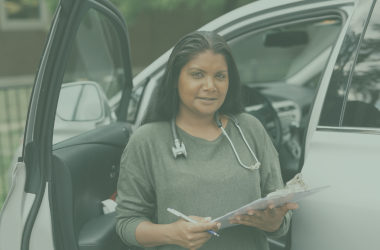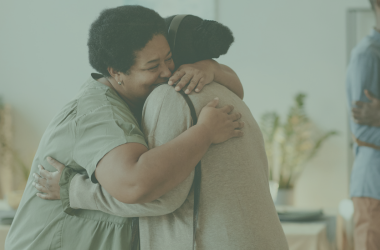Welcome to the Future of Health Equity
OPAHL - MC
Empowering communities through building partnerships , timely support, and legal expertise directly, our training manual serves as a comprehensive guide for clinical, behavioral health, social service, and legal providers to address and overcome health-harming legal needs within Latinx and migrant populations. Together, we build a healthier, more just society.
Proven Impact and Methodology
Justice-Driven Health Solutions
Our approach synergistically combines clinical and legal expertise, ensuring a remarkable 95% success rate in integrating legal services within health centers, with the goal of overcoming barriers to healthcare for underserved communities. This strategic integration of services not only addresses the immediate legal and health needs but also fosters long-term health equity and access. By blending the specialized knowledge and skills of health and legal professionals, we create a robust framework that significantly enhances patient outcomes and service efficiency in community health centers.
9 tailored training sessions
Designed to foster effective medical-legal partnerships, enhancing provider capabilities across disciplines.
Over 100 providers
have been trained in interdisciplinary care approaches, boosting collaborative skills and holistic service delivery.
95% success rate
in integrating legal services within health centers, demonstrating effective synergy between healthcare provision and legal advocacy.
Increased access to legal services by 80%
in participating community health centers, significantly reducing health-harming legal barriers for patients.
Empowerment Through Education and Legal Expertise
Bridging Care and Justice

Health Services
Integrating comprehensive health and legal services to ensure all community members receive holistic support and care, enhancing overall well-being.

Legal Awareness
Educating health and social services providers on identifying legal barriers that negatively impact patient health, fostering a proactive approach to healthcare delivery.

Training Providers
Equipping healthcare and legal professionals with the skills to implement effective medical-legal partnerships, improving patient outcomes.

Community Outreach
Engaging with local communities to raise awareness about available services, promoting accessibility and encouraging proactive health management.

Policy Advocacy
Advocating for policies that support the integration of health and legal services, aiming to reform healthcare for vulnerable populations.

Research and Data
Utilizing data-driven approaches to enhance service delivery, ensure effectiveness, and continuously adapt to the evolving needs of migrant communities.
Uniting Care with Justice
Health Through Legal Empowerment
Our initiative fuses patient-facing legal expertise with healthcare to dismantle barriers, ensuring every individual in the migrant community can access the services they need for a healthier, more secure future.
Integrated Health and Legal Training for Diverse Communities
2024 OPAHL-MC manual promotes holistic, equitable healthcare and legal integration to effectively serve Latinx and migrant populations through interdisciplinary collaboration.
- Holistic Integration
- Social Justice
- Collaborative Partnerships
- Community-Centric
- Capacity Building
- Sustainability
- Evidence-Based
- Accessibility
Solidarity that transforms
Transform Communities
Philadelphia
Pennsylvania has a long history as a migrant hub, with a vibrant Latinx community today. The city offers strong migrant services, including medical-legal partnerships like those at the Legal Clinic for the Disabled, which address both health and legal needs.
New York
New York City a historic entry point for immigrants, offers extensive services for migrants, including healthcare and legal aid. The partnership between Betances Health Center and LegalHealth highlights how the city integrates legal support to improve health outcomes.
San Juan
San Juan is a key link between the Caribbean and the U.S., facing significant migration. The city provides integrated legal and healthcare services to address migrant challenges, aligning with this manual’s focus on medical-legal partnerships.
Leaders in Justice-Driven Health Solutions
Building Health Equity Across Communities.
Miguel Muñoz
Dr. Miguel Munoz-Laboy has dedicated over 17 years to public health and social work, focusing on substance use, HIV care, and medical-legal partnerships. His research emphasizes the role of social determinants like masculinity and structural violence in shaping health outcomes among Latinx and marginalized populations. Through his work, Dr. Munoz-Laboy advances health equity by integrating legal resources into public health frameworks to address systemic barriers effectively.


Maria E. Torres
Dr. Maria E. Torres brings a wealth of experience in health services research, focusing on marginalized identities including racial/ethnic minorities and immigrants, with a recent expansion into examining BIPOC experiences across spectrums of gender and sexual orientation. Her work critically assesses cultural and structural competency within healthcare systems, workforce development, and the impact of policy on care quality. Dr. Torres champions intersectional approaches to enhance treatment experiences and outcomes for the most vulnerable populations.
Omar Martinez
Professor Omar Martinez, with dual degrees in public health and law, and extensive training in clinical research methods, spearheads transformative interventions to combat health disparities. His work, deeply rooted in implementation science, enhances the integration of legal services within healthcare settings, focusing on empowering HIV patients through innovative, multilevel intervention models. His approach not only addresses immediate health needs but also tackles structural barriers, such as immigration and discrimination, to improve overall health outcomes.

Shared Journies of Success
Testimonials

“This program gave me the confidence to access healthcare without fear. Knowing there’s legal help available has made a huge difference in my family’s life.”
Nancy Gutierrez
Migrant, San Juan, 45 years old

“The training transformed my approach, enabling me to effectively connect patients with both healthcare and legal services, ensuring they receive comprehensive support tailored to their needs.”
Stella Benavides
Migrant, San Juan, 39 years old

“Integrating legal expertise into our practice has been crucial. We’ve seen remarkable improvements in patient health outcomes by addressing the legal barriers affecting their well-being.”
Jorge Lopez
Doctor, New York , 41 years old

“Working alongside healthcare providers has amplified our impact, allowing us to resolve issues more holistically and prevent health-harming legal needs from escalating.”
Adriana Hernandez
Attorney, San Juan, 39 years old
Contact Us
Ready to receive help or get involved? We would love to hear from you.
Learn More From
Frequently Asked Questions (FAQs) About the Training Manual Project
- The manual is designed to train healthcare, social service, and legal professionals to effectively implement medical-legal partnerships (MLPs) that address health-harming legal needs, particularly in Latinx and migrant communities.
This manual is intended for clinical, behavioral health, social service, and legal providers looking to integrate legal services into healthcare settings to improve health outcomes for underserved populations.
MLPs are collaborations between healthcare providers and legal professionals to identify and address legal issues that negatively affect patients’ health, such as housing instability, immigration status, or employment discrimination.
Yes, while the focus is on Latinx and migrant communities due to their unique challenges, the concepts and methodologies can be adapted to other populations facing similar barriers to health equity.
Expected outcomes include improved access to legal and healthcare services, better health outcomes, increased provider awareness of social determinants of health, and stronger interdisciplinary collaborations.
Yes, organizations can seek guidance and support from the manual’s authors, as well as from local and national medical-legal partnership networks.






